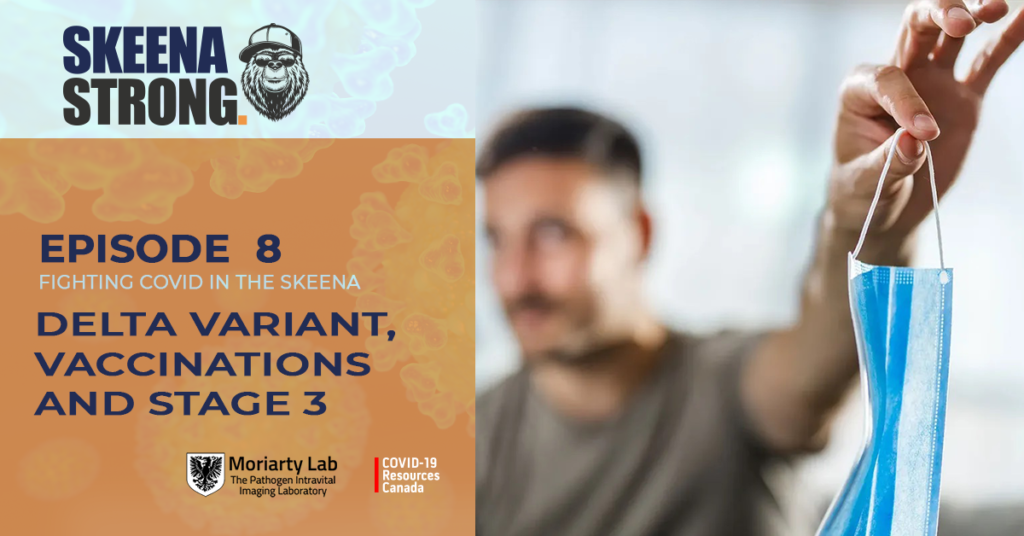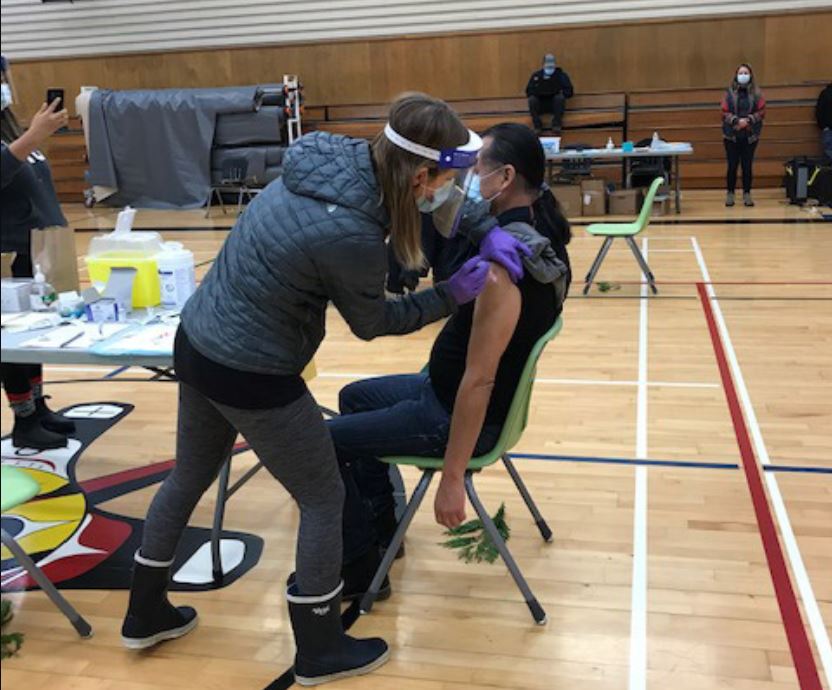It can be a confusing time to understand the risks of COVID in Skeena.
On the one hand, vaccine rates are very high in the region. In places like Kitimat the rate is over 80 percent, which is higher than the Canadian average.
On the other hand, there are new fears about the super contagious Delta variant. And over the past few months there have been reports that some fully vaccinated people have still been getting infected.
To help us make sense of it all, Skeena Strong recently hosted some of the country’s foremost infectious disease experts for an episode of our virtual show “Fighting COVID In The Skeena.” You can watch the whole episode here.

Those experts included Dr. Yanet Valdez Tejeira, the B.C. lead for COVID-19 Resources Canada; Dr. Jason Kindrachuk, an assistant professor at the University of Manitoba; and Dr. Zain Chagla, an infectious disease physician and associate professor at McMaster University.
They all agreed: the current vaccines remain highly effective and if you are fully vaccinated your risk of getting seriously ill from the Delta variant is very low. “The risk of hospitalization is reduced by 96 percent,” Chagla explained during the event. “The risk of death is incredibly low.”

But if that’s the case, then how come we read in the news about so-called “breakthrough” infections, where people who have the vaccine still get sick?
“Remember,” Chagla said. “We put our vaccines into the most at-risk individuals. The oldest individuals, the ones with multiple medical issues and into our healthcare workers who had the highest risk of acquiring COVID-19.”
Even then, the amount of breakthrough cases is extremely small. Data suggests they represent only 0.5 percent of new Canadian COVID cases. (To put that in perspective, you have higher odds of dying in a car accident, which is about a 1 percent risk.) And even then, once you have the vaccine, the odds of getting sick after being infected are drastically reduced.
But because these infections are rare and shocking, they tend to get lots of media coverage, which can make them seem more widespread than they actually are.




